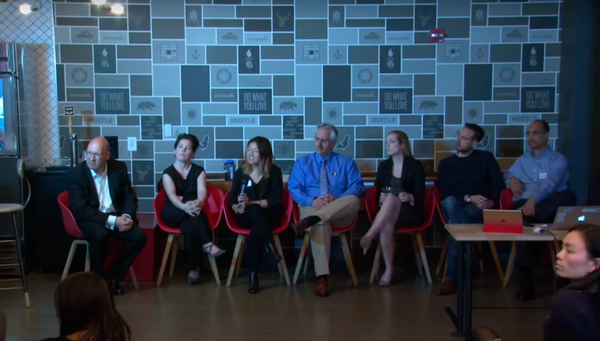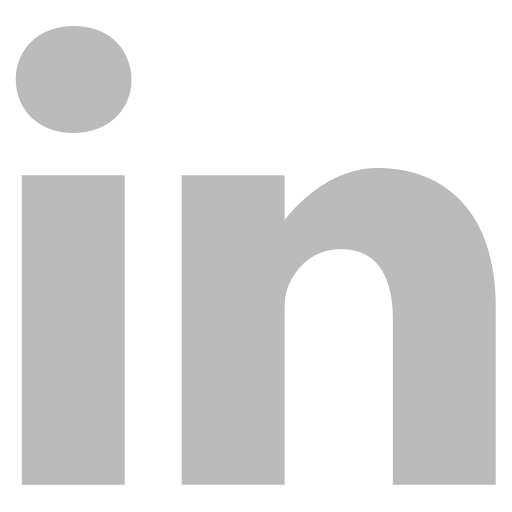Contributions to the Open edX Community
IBL Education is one of the top contributors to the Open edX community.
These are some of our main contributions:
These are some of our main contributions:
-
IBL News Service and Monthly Newsletters — after five years of reporting on Open edX initiatives and developments, IBL launched a comprehensive news and insights service in 2018 in English and Spanish.
IBLNews.org reports on Open edX, learning innovation and other emerging technologies in online education.
As a news community, IBL News distributes its updates under a Creative Commons license and operates as a nonprofit initiative. Everyone is invited to contribute. -
Open IBL Jupyter Notebook — on August 21, IBL Education launched a Jupyter Notebooks – ready Open edX distribution.
Open IBL Jupyter Notebook is built on the Ginkgo.2 version of Open edX. This release is free and is ready to go from the AWS (Amazon Web Services) AMI community. Demo of Open IBL Jupyter Notebook.
IBL Education: Open IBL Jupyter Notebook: New Distribution of Open edX on AWS’ AMI Community -
The First Available Open edX Distribution — Open IBL is an easy-to-handle, production-ready version of the latest release of the Open edX software (Ginkgo.2). It is free and ready to go from the AWS (Amazon Web Services) AMI marketplace.
“We took the latest version of the Open edX software (Ginkgo.2), stabilized it and equipped it with a command-line builder to easily get up and running. OpenIBL is a contribution of ours to the educational community,” explained Michael Amigot, CEO at IBL Education.
There are four steps to launch Open IBL instance:
1 – Go to your Amazon EC2 dashboard
2 – Click on “Launch instance”
3 – Select Community AMIs
4 – Search “OpenIBL”
The Open IBL distribution allows you to easily personalize the setup:
SSH into your new deployed OpenIBL instance and use these commands to change these basic settings:
sudo ibl lms-domain your_lms_domain_name_or_ip_adress
sudo ibl cms-domain your_cms_domain_name_or_ip_adress
sudo ibl platform-name “Your platform Name”
sudo ibl platform-email your_email_adress
These two screencast videos explain the installation and configuration process. (Video 1, Video 2)
IBL Education: Open IBL, First Available Open edX Distribution
-
Jupyter Notebook Viewer XBlock — from any public Jupyter Notebook (e.g., in a public repo on GitHub), you can pull content into a course learning sequence using only the URL, with optional start and end marks (any string from the first cell to include, and the first cell to exclude).
This allows course authors to develop their course content as Jupyter Notebooks, and to build learning sequences reusing that content, without duplication. It also has the added benefit that the development of the material can be hosted on a version-controlled repository. (Open edX, itself, doesn’t provide version control of course content.)
[See IBL’s post about the XBlock, and the code repository—the XBlock is open source under a BSD3 license.]
-
Graded Jupyter Notebook XBlock — create an assignment using the nbgraderJupyter extension, then insert a graded sub-section in Open edX that will deliver this assignment (as a download), auto-grade the student’s uploaded solution, and record the student’s score in the gradebook.
The XBlock instantiates a Docker container with all the required dependencies, runs nbgrader on the student-uploaded notebook, and displays immediate feedback to the student in the form of a score table.
[See IBL’s post, and the code repository—the XBlock is open source under BSD3.]
IBL: Jupyter-Based Courses in Open edX: Authoring and Grading with Notebooks
IBL: Lorena Barba Implements An Effective Flipped Learning Experience With Jupyter
IBL: GW and IBL Release an Open edX XBlock to Add Graded Problems Based on Jupyter Notebooks
IBL: An Open edX XBlock to Load Content from a Jupyter Notebook
-
Custom Open edX Ecosystems — among the largest organizations and pioneers in online learning, IBL Education introduced NVIDIA, Global Knowledge, NYU, SUNY, and the U.S. Air Force to the Open edX Community.
IBL and NVIDIA partnered to create the Deep Learning Institute, built to educate over 600k developers, data scientists and researchers with an accessible learning ecosystem under NVIDIA’s full control.
Global Knowledge, the largest private IT training company in the world, released their learning platform and was featured by CIO magazine as one of the most innovative IT training offerings on the market. On the first day of its launch, there were 7k enrollments around the world, and in the 8 months since the launch, Global Knowledge has released 165 new courses, with 117k course enrollments.
The U.S. Air Force learning platform, Air University, is prepared to host 700k learners.
IBL: Testimonial – Adam Tetelman, Platform Manager at NVIDIA Deep Learning Institute
IBL: Testimonial – Paul Tocatlian, Director of Engineering at Global Knowledge
IBL: Testimonial – David Vise, Executive Director at Modern States Education Alliance
IBL: Testimonial – Lorena Barba, Professor at The George Washington University -
Micro-Credentials — the BadgeOne XBlock and Server, developed in 2014-2015 by the George Washington University (GW) and IBL Education with the support of edX.
The badges can be awarded from graded sub-sections in a course in Open edX. The instructor sets the minimum score for the eligibility of the badge and configures the badge component with the data of the badge service, the badge ID, and custom messages for the user at the sub-section (or sub-module) level. There is no limit on the number of badges that can be earned within a course.
In November 2014, GW Professor Lorena Barba published a slide deck describing the concept and instructional design for her course, “Practical Numerical Methods with Python.” She described her proposal of “unbundling the course,” as follows: “Instead of awarding one Certificate of Completion for the whole course, we want to award digital badges for the completion of each individual module.” The course is composed of five modules, each with a graded sub-section and awarded with an open badge. The image of the open digital badge awarded for Module 1 of the course is available for re-use under CC-BY, as an example.
Resulting from the work by Prof. Barba and IBL in 2014, edX itself contracted IBL to complete a follow-on project to produce the Badge One server. Combined with the XBlock, this was the first complete solution to award open badges from a graded sub-section in Open edX.
Anant Agarwal, CEO of edX, enthusiastically supported this badge development. Since then, the George Washington University has been consistently using badges in their engineering courses, awarding over 300 badges. The “Practical Numerical Methods with Python” course has been the reference in this field.
IBL: A New XBlock to Award Badges After an Assessment in the Course
IBL: Two Universities Launch Badges on their Open edX Platforms
IBL: The First XBlock that Allows Badges on Open edX is Released -
Open edX Meetups in New York — IBL launched the Open edX Meetups in 2015 to educate on this technology and pedagogy and create a leading community of educators and technologists. In partnership with McKinsey, we organized four successful events in New York.
Today this Open edX collaborative group is the largest meetup-community in the world, with 650 members. A new meetup will be celebrated this year.



.png)










.png)
